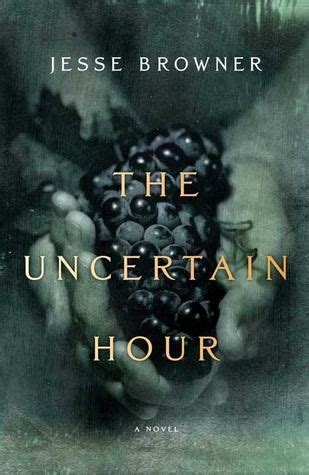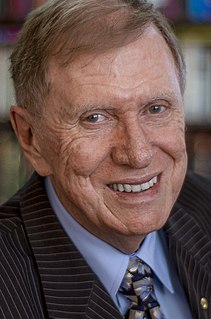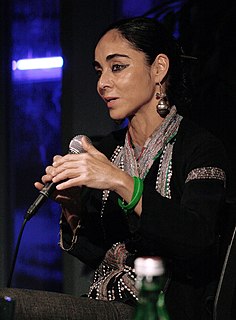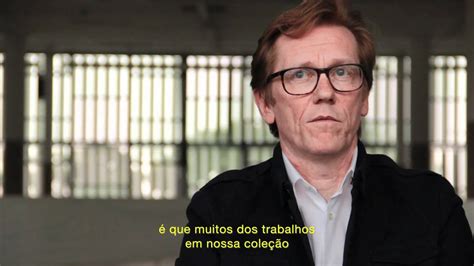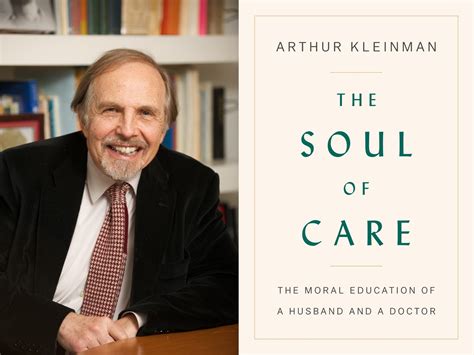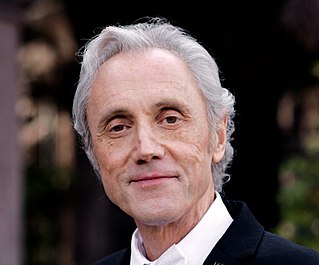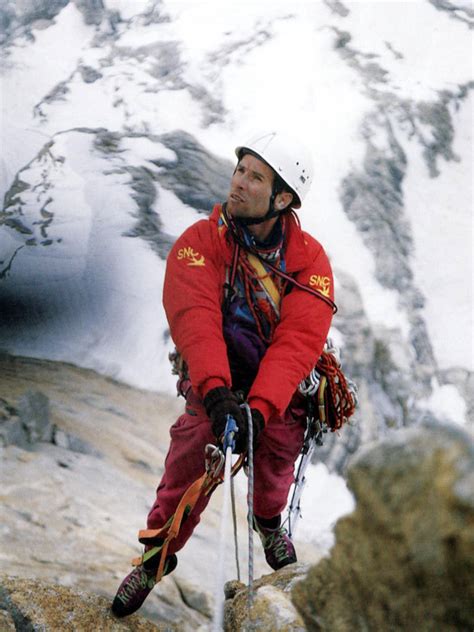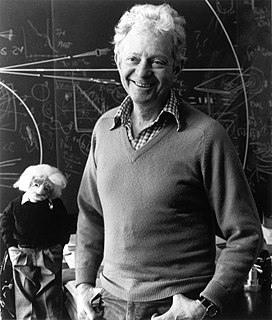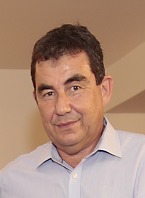Top 400 Existential Quotes & Sayings - Page 7
Explore popular Existential quotes.
Last updated on April 21, 2025.
Polar fleece is a plush, spongy, totally artificial material that weighs nothing and conveys no quality of warmth or coolness; in fact, you can wear it in the most bitter weather or in the hottest heat. Polar fleece looks neither flimsy and light nor hearty and warm. It has no historical, cultural, or physical association with a place, a season, a society, or any living thing. It is the first existential fabric - eminentaly useful, meaningless, dissociated and weird.
There is also an underlying, less specific fear - what some might call an ontological or existential anxiety - that shrouds our days and seeps into our dreams. We feel empty and seek meaning. We feel empty and seek meaning. We yearn and know not what we yearn for. There is a black hole at the center of our understanding that engulfs and crushes our every attempt to explore it. Something is missing.
The brief relief of seeing other people when I leave my room turns into a desperate need to be alone, and then being alone turns into a terrible fear that I will have no friends, I will be alone in this world and in my life. I will eventually be so crazy from this black wave, which seems to be taking over my head with increasing frequency, that one day I will just kill myself, not for any great, thoughtful existential reasons, but because I need immediate relief.
You can learn technological things, you can learn about specific things, but the real problems that people deal with in any subject, existential subjects or romantic subjects, you never learn anything. So you make a fool of yourself when you're 20, you make a fool of yourself at 40, at 60 at 80. The ancient Greeks were dealing with these problems. They screwed up all the time. People do now.
First, you hand over some basics-overwhelming joy, existential angst, a giving-in to desire, etc. And then you promise to withstand talking idly about the weather, to encourage cliché, to uphold the virtues of average. You hand over the need to be understood and, in return, you get a bar of Normal soap. And you can wash in it and be daily reborn to a safe world of modest, enduring love or, at least, mild, well-mannered bonding.
One of the manifestations of depression for me is that I lose my will. And I thereby lose my ability to focus. I don't think I'll ever have the day-to-day consistency in my performance that something like This American Life has. If I'm not depressed and I'm on and I can focus and I can think through something hard and without interruption and without existential emptiness that comes from depression, that gives me - not mania. But I exalt. I exalt in not being depressed.
Man is the only animal who does not feel at home in nature, who can feel evicted from paradise, the only animal for whom his own existence is a problem that he has to solve and from which he cannot escape. He cannot go back to the prehuman state of harmony with nature, and he does not know where he will arrive if he goes forward. Man's existential contradiction results in a state of constant disequilibrium. This disequilibrium distinguishes him from the animal, which lives, as it were, in harmony with nature.
Death is the door from the superficial life, the so-called life, the trivial. There is a door. If you pass through the door you reach another life - deeper, eternal, without death, deathless. So from so-called life, which is really nothing but dying, one has to pass through the door of death; only then does one achieve a life that is really existential and active - without death in it.
Failure to summon forth the courage to risk a nondogmatic and nonevasive stance on such crucial existential matters can also blur our ethical vision. If our actions in the world are to stem from an encounter with what is central in life, they must be unclouded by either dogma or prevarication. Agnosticism is no excuse for indecision. If anything, it is a catalyst for action; for in shifting concern away from a future life and back to the present, it demands an ethics of empathy rather than a metaphysics of fear and hope.
If I wrote about "being [abstraction]" I would be ignoring existential issues (such as death, limited-time, the arbitrary nature of the universe, the mystery of consciousness) that I feel affect me most in my life and think about most of the time. Another reason is that it doesn't seem specific or accurate, to me, to write about "being [abstraction]." I think there are some other reasons.
Vogue began to focus on the body as much as on the clothes, in part because there was little they could dictate with the anarchic styles...In a stunning move, an entire replacement culture was developed by naming a 'problem' where it had scarcely existed before, centering it on the women's natural state, and elevating it to the existential female dilemma...The number of diet-related articles rose 70 percent from 1968 to 1972...The lucrative 'transfer of guilt' was resurrected just in time.
When I was in college, I remember fearing that the dreary grind of adulthood would feature infinitely more existential dread than frat parties had, but the opposite has been true for me. I'm much less likely to feel that gnawing fear of aimlessness and nihilism than I used to be and that's partly because education gave me job opportunities, but it's mostly because education gave me perspective and context.
It was a truism that all civilizations were basically neurotic until they made contact with everybody else and found their place within the ever-changing meta-civilisation of other beings, because, until then, during the stage when they honestly believed they might be entirely alone in existence, all solo societies were possessed of both an inflated sense of their own importance and a kind of existential terror at the sheer scale and apparent emptiness of the universe.
When in the evening we are alone with our most existential thoughts, it is then that we come face to face with the most precious truths that we discover in our brief existence in this world. Just before fatigue envelopes us, taking us into sleep. We think of what our lives actually mean. And then we know how lucky we are if we still enjoy consciousness, rationality and love. But the greatest of these is love.
What I'm trying to do is paint a picture of an atypical human being going through all of the existential struggles, but all the while realizing the carnality and small things, because I like minutiae a lot. All the while knowing that it's a forest - knowing that none of it means anything. I think if more people understood that, they would just go ahead and kill themselves like they're gonna do anyway, but do it quickly as opposed to hanging out and using up resources. Don't just sit around criticizing other people and wasting time. I do that, but I'm not really skilled in any other way.
You're faced with creation, you're faced with something very mysterious and very mystical, whether it's looking at the ocean or being alone in a forest, or sometimes looking at the stars. There's really something very powerful about nature that's endlessly mysterious and a reminder of our humanity, our mortality, of more existential things that we usually manage to not get involved with very often because of daily activity.
I will not sleep fine if Donald Trump wins and I will not sleep fine is Hillary Clinton wins. Whether you are looking at nuclear weapons, whether you are looking at expanding wars and their blowback, which will not stop as long as those wars continue to expand, or whether you're looking at the climate, in my view, we have no choice. This is an existential moment. We are deciding not only what kind of world we will have, but whether we will have a world or not. I think it's very important to get outside this box that tells us we are powerless, when in fact, we are powerful.
These artists all have some kind of message to the public. These messages can be quite personal, maybe about their own existential situation, and it can be about suffering, it can be about questioning of one's existence and so on. They are all telling us very genuine stories, which are touching us in different ways and they are enlightening in different ways. But it's not only the stories themselves, but it's how it is done - that creates the impact of the story. It is not what is said but how it is said. I don't think you can dissociate the content from the form.
Michael [Jackson] reconstructed his face and deconstructed the African features into a spooky European geography of fleshly possibilities, and yet what we couldn't deny, that even as his face got whiter and whiter his music got Blacker and Blacker. His soul got more deeply rooted in the existential agony and the profound social grief that Black people are heir to.
Michael Jackson is an extremely productive ethnographer, a serious reader of phenomenological and existential philosophy, and a remarkable writer at a level that one rarely sees in anthropology. Lifeworlds, unsurprisingly, is no exception. The several essays included here fit into an impressive whole that set out a compelling case for a type of ethnography of which Jackson is one of the masters. The writing is strong and the critical reflections impressive. This book defines an approach to anthropology that is resonant enough to challenge the leading models of our time.
I am absolutely against positive thinking. You will be surprised that if you don't choose, if you remain in a choiceless awareness, your life will start expressing something which is beyond both positive and negative, which is higher than both. So you are not going to be a loser. It is not going to be negative, it is not going to be positive, it is going to be existential.
[Having] appropriated to itself all conscious intelligence in the universe ...Man faces the existential crisis of being a solitary and mortal conscious ego thrown into an ultimately meaningless and unknowable universe ...and the psychological and biological crisis of living in a world that has come to be shaped in such a way that it precisely matches his world view-i.e., in a man-made environment that is increasingly mechanistic, atomized, soulless, and self-destructive.
One's condition on marijuana is always existential. One can feel the importance of each moment and how it is changing one. One feels one's being, one becomes aware of the enormous apparatus of nothingness - the hum of a hi-fi set, the emptiness of a pointless interruption, one becomes aware of the war between each of us, how the nothingness in each of us seeks to attack the being of others, how our being in turn is attacked by the nothingness in others.
The arrogant elimination of the Djaouts of our world must nerve us to pursue our own combative doctrine, namely: that peaceful cohabitation on this planet demands that while the upholders of any creed are free to adopt their own existential absolutes, the right of others to do the same is thereby rendered implicit and sacrosanct. Thus the creed of inquiry, of knowledge and exchange of ideas, must be upheld as an absolute, as ancient and eternal as any other.
Artists have their existential questions as human beings, and they address these questions in their works. But they are also thinking in a broader sense when they participate in a social and political debate through their works. Often the most important voices of artists in the political and the social debate are focused on originality in their works. We can see this in historical pieces, like "Guernica" by Picasso. "Guernica" was an extremely important manifestation and critique against war, but it was important and powerful because it was also an incredibly original and powerful work of art.
When you are totally defeated you begin again to enjoy the small things around you. Just going to the mountains, not for victory or glory, but to enjoy nature or enjoy fine people. If you always succeed you enjoy the admiration of many people. Being defeated means being limited to the basis existential choices of life. If you can enjoy the quiet evening hours it is beautiful; a hero who always succeeds may not have time to enjoy such things.
The entrepreneurial struggle is the same at basically every stage in the sense that there's maybe slightly less risk but strategic issues are generally always the same. Now there's so much existential risk from another company either being able to compete or to disrupt you in the same way you're disrupting somebody else, an entrepreneur needs a real steady partner who has the ability to start working with them in the Seed or the A and be credible and value-add with strategic advice, and just be backstopped by so much capital that you can do any growth round or even a public round.
If I had to choose between the two ways of approaching the deity, I should prefer the existential relational way, to the abstract philosophical way. I think it is truer, or in any case, less misleading, to say that God is an old Jew with a white beard whom I love, than to say that God is the ground of being and meaning, or to say that God is a name denoting the ultimate mystery. I prefer the bold primitive colors of the Biblical way of describing God.
Human social life, I suggest, is the magma that erupts and builds up, so to speak, at the fault lines where natural human capacities meet and grind against and over natural human limitations…. This meeting of powers and limitations produces a creative, dynamic tension and energy that generates and fuels the making of human social life and social structures…. It is real human persons living through the tensions of natural existential contradictions who construct patterned social meanings, interactions, institutions, and structures.
The greatest existential risks over the coming decades or century arise from certain, anticipated technological breakthroughs that we might make in particular, machine super intelligence, nanotechnology and synthetic biology. Each of these has an enormous potential for improving the human condition by helping cure disease, poverty, etc. But one could imagine them being misused, used to create powerful weapon systems, or even some kind of accidental destructive scenario, where we suddenly are in possession of some technology that's far more powerful than we are able to control or use wisely.
Not unnaturally, many elevators imbued with intelligence and precognition became terribly frustrated with the mindless business of going up and down, up and down, experimented briefly with the notion of going sideways, as a sort of existential protest, demanded participation in the decision-making process and finally took to squatting in basements sulking. An impoverished hitch-hiker visiting any planets in the Sirius star system these days can pick up easy money working as a counsellor for neurotic elevators.
In my life, I didn't get into comedy to be - I had no business model. All I wanted to do was, basically, finish becoming myself. And you stand in front of people and be seen and heard in this format. I thought it was the most practical format for me to express whatever it was I was going through. Whatever my ideas were in my evolving philosophy about life. I obviously don't sell out theaters. I'm not a household name. I'm not incredibly consistent in terms of doing the same act over and over again, and I'm definitely working out a lot of my existential issues onstage.
When I talk about the pain and hardship of a scientist's life, I'm speaking of more than existential angst. Galileo's work was condemned by the Church; Madame Curie paid with her life, a victim of leukemia wrought by radiation poisoning. Too many of us develop cataracts. None of us gets enough sleep. Most of what we know about the universe we know thanks to a lot of guys (and ladies) who stayed up late at night.
I'm pretty critical, but I'm also pretty good at letting go once it's done. There's this existential argument that comes in, at some point, when you're over-thinking the songwriting process. There's no guarantee that the more time you spend or the more you concentrate on certain aspects that that's going to produce a better result, especially in the arts. Some of the most brilliant things that someone might do could happen in three minutes because it's something that just occurs to them.
The capacity to be alone is the capacity to love. It may look paradoxical to you, but it is not. It is an existential truth: only those people who are capable of being alone are capable of love, of sharing, of going into the deepest core of the other person without possessing the other, without becoming dependent on the other, without reducing the other to a thing, and without becoming addicted to the other.
When I touched my hand against the Western Wall and placed my prayer between its ancient stones, I thought of all the centuries that the children of Israel had longed to return to their ancient homeland. When I went to Sderot and saw the daily struggle to survive in the eyes of an eight-year-old boy who lost his leg to a Hamas rocket, and when I walked among the Hall of Names at Yad Vashem, I was reminded of the existential fear of Israelis when a modern dictator seeks nuclear weapons and threatens to wipe Israel off the face of the map - face of the Earth.
Good therapy, gently but firmly, moves people out of denial and compartmentalization. It helps clients to develop richer inner lives and greater self-knowledge. It teaches clients to live harmoniously with others and it enhances Existential consciousness, and allows people to take responsibility for their effects on the world at large. For me , happiness is about appreciating what one has. Practically speaking,this means lowering expectations about what is fair, possible and likely. It means,finding pleasure in the ordinary.
Only a few years ago did it suddenly dawn on me that my existential fear regarding my nation’s future and my moral outrage regarding my nation’s occupation policy are not unconnected. On the one hand, Israel is the only nation in the West that is occupying another people. On the other hand, Israel is the only nation in the West that is existentially threatened. Both occupation and intimidation make the Israeli condition unique. Intimidation and occupation have become the two pillars of our condition.
The Internet is really our meeting place. We have this amazing listserv. Every time I log onto it I feel a sense of pride, because if you log on and say, "Oh I was just in San Diego and I was in a park and I saw a lion," the flurry of replies on average is just like--wow! All these existential questions about what it means to be an African, and never having seen a lion at home, but having seen a lion here. Everything you say turns into this real philosophical debate--it's incredible in so many ways. And it's an invigorating place to be.
In the next century, we will be inventing radical new technologies - machine intelligence, perhaps nanotech, great advances in synthetic biology and other things we haven't even thought of yet. And those new powers will unlock wonderful opportunities, but they might also bring with them certain risks. And we have no track record of surviving those risks. So if there are big existential risks, I think they are going to come from our own activities and mostly from our own inventiveness and creativity.

